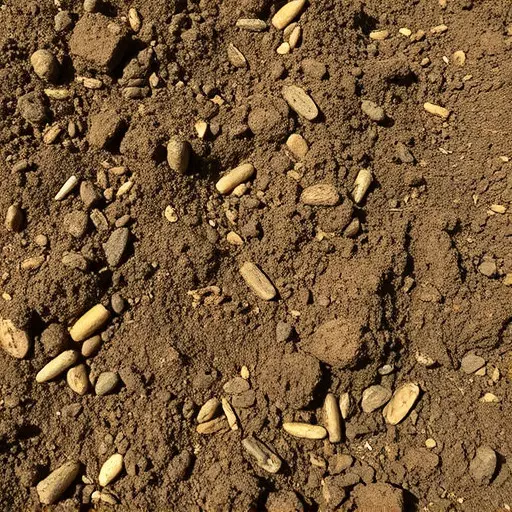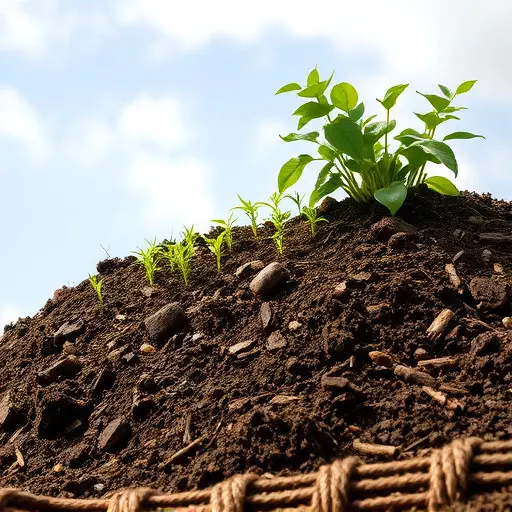Composting through topsoil recycling services in Toledo is a powerful tool for soil restoration and sustainable practices. These services collect and process organic waste from households and businesses, producing nutrient-rich compost that improves soil health, water retention, and plant growth. By diverting materials from landfills, they contribute to a vibrant urban landscape, support local gardening and parks, and promote a circular economy. Organic waste recycling is an eco-friendly approach with global implications, offering community engagement in environmental conservation efforts and reducing greenhouse gas emissions. Starting your own composting at home with these services is simple and effective, further enriching the soil and fostering sustainable living initiatives.
Composting is a powerful tool for eco-conscious individuals aiming to enhance soil health and reduce organic waste. This article explores the art of composting, delving into its foundational principles, particularly focusing on how topsoil recycling services in Toledo contribute to sustainable practices. We’ll uncover various organic waste recycling methods, highlighting their benefits for both homes and communities. Furthermore, practical tips will guide beginners through the process, empowering them to make a positive environmental impact.
- Understanding Composting: The Basics of Soil Restoration
- Topsoil Recycling Services in Toledo: How They Work
- Types of Organic Waste Recycling Methods
- Benefits of Composting for Your Home and Community
- Getting Started: Practical Tips for Effective Composting
Understanding Composting: The Basics of Soil Restoration
Composting is a natural process that transforms organic waste into nutrient-rich material beneficial for soil restoration. By understanding this fundamental concept, we can harness its power to enhance our local ecosystems and support sustainable practices. The basis of composting lies in the decomposition of materials like food scraps, yard trimmings, and other organic byproducts, which are often considered waste but hold immense potential. These organic wastes, when properly managed, can be recycled into valuable compost through various methods, including aerated pile systems and worm bin setups.
In Toledo, topsoil recycling services play a crucial role in promoting soil health and sustainability. By collecting and processing organic waste from households and businesses, these services divert materials from landfills, reducing the environmental impact of waste disposal. The resulting compost is a rich, natural fertilizer that can be used to improve soil structure, increase water retention, and promote the growth of healthy plants and vegetation. This not only benefits local gardens and parks but also contributes to a more vibrant and resilient urban landscape through enhanced soil restoration.
Topsoil Recycling Services in Toledo: How They Work
In Toledo, topsoil recycling services play a vital role in soil restoration and organic waste recycling. These services operate by collecting organic materials such as yard waste, food scraps, and plant debris from local households and businesses. Once collected, the organic waste is transported to a composting facility where it undergoes a controlled decomposition process.
At these facilities, the organic material is meticulously mixed, aerated, and monitored to ensure efficient breakdown. The resulting compost is then screened for quality and used to enrich local soil. This not only reduces the amount of organic waste ending up in landfills but also provides a valuable resource for area gardens, parks, and agricultural operations. By harnessing the power of topsoil recycling services Toledo residents and businesses can contribute to sustainable soil management practices while fostering a greener community.
Types of Organic Waste Recycling Methods
Organic waste recycling is a sustainable practice that plays a vital role in soil restoration and creating healthy ecosystems. In the context of cities like Toledo, topsoil recycling services have gained prominence as an effective way to manage organic waste. This process involves transforming various types of organic materials, such as food scraps, yard trimmings, and even certain types of cardboard, into nutrient-rich compost. The end product is a valuable resource that can be used in gardening, agriculture, and landscaping, thereby reducing the demand for synthetic fertilizers and enhancing soil fertility.
There are several methods employed in organic waste recycling, each with its unique benefits. For instance, industrial composting facilities utilize large-scale processes to convert organic waste into compost on a significant scale. On a smaller level, home composting systems allow individuals to recycle their organic waste directly in their backyards or kitchens. Additionally, some communities have implemented green waste collection programs, where organic materials from parks and public spaces are recycled, ensuring efficient utilization of local resources. These diverse methods contribute to a circular economy by minimizing organic waste sent to landfills and promoting the restoration and preservation of healthy soil through topsoil recycling services.
Benefits of Composting for Your Home and Community
Composting is an eco-friendly practice that offers numerous advantages for both your home and the local community. One of its key benefits is promoting soil restoration, which is especially valuable in urban areas where topsoil recycling services are essential. By composting organic waste, such as kitchen scraps and yard clippings, you contribute to a sustainable cycle that enriches the soil, reducing the need for synthetic fertilizers. This natural process not only enhances the quality of local topsoil but also supports a healthier environment by diverting waste from landfills.
Moreover, composting fosters a sense of community engagement in environmental conservation efforts. When residents adopt this practice, it can lead to significant reductions in organic waste sent to landfills, thereby lowering greenhouse gas emissions. This collective action can inspire further initiatives for sustainable living and encourage the development of local recycling programs, including topsoil recycling services in Toledo and beyond.
Getting Started: Practical Tips for Effective Composting
Starting your composting journey is easier than you think! One of the best ways to get started is by understanding what organic materials can be composted, such as food scraps, yard waste, and even coffee grounds. In Toledo, topsoil recycling services play a vital role in soil restoration and promote sustainable practices by turning these organic wastes into nutrient-rich compost that can be used for gardening and landscaping.
When setting up your compost pile, choose a dedicated area in your garden or patio. Layer green materials like vegetable scraps with brown materials such as dry leaves or shredded paper. Maintain proper moisture levels and aerate the pile regularly to ensure efficient decomposition. Remember, effective composting is not just about convenience; it’s an eco-friendly way to divert organic waste from landfills and contribute to healthier soil through organic waste recycling.


